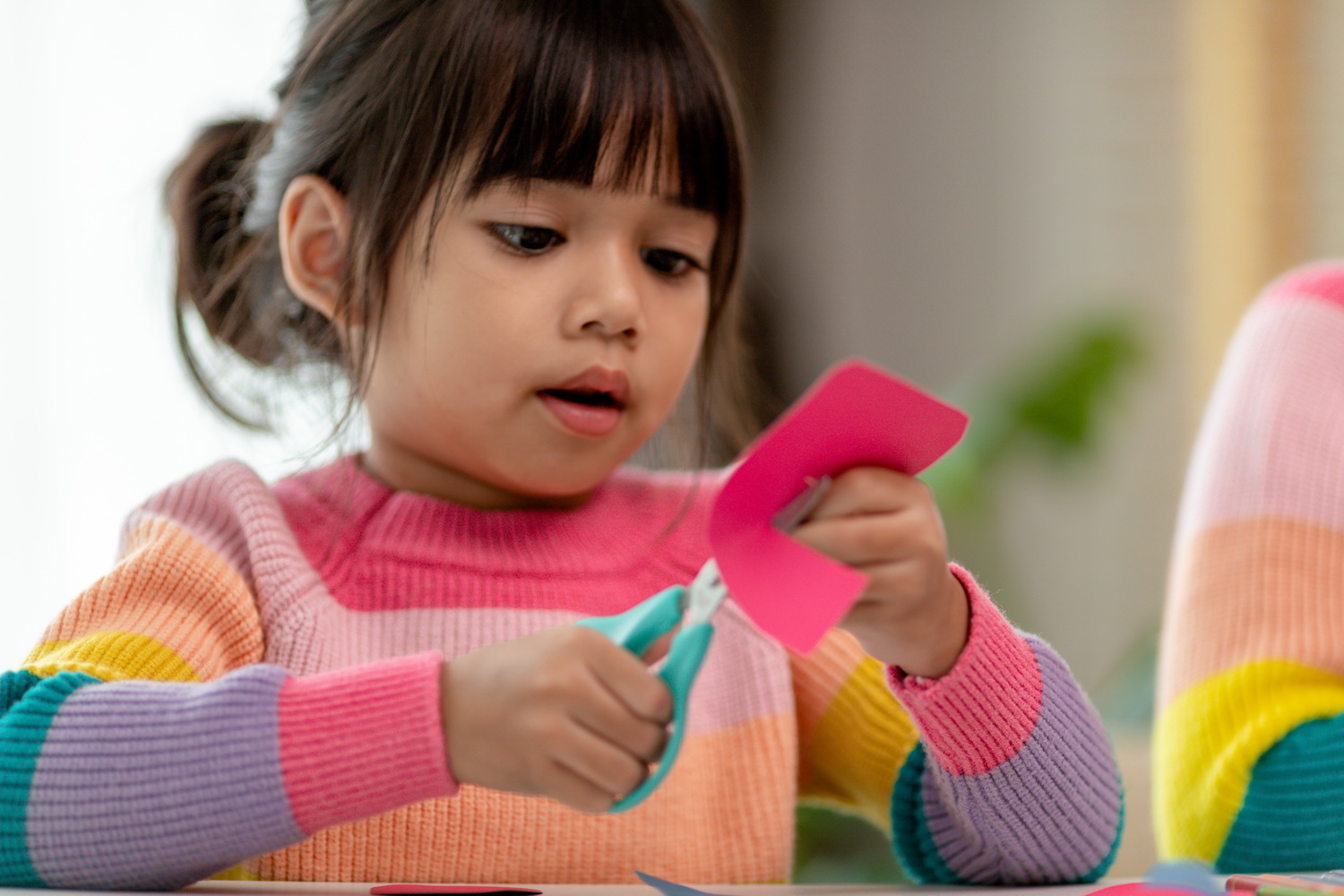Rhyming skills Reading Worksheets for Ages 3-6
5 filtered results
-
From - To
Discover our engaging Rhyming Skills Reading Worksheets designed specifically for children ages 3-6! These playful and interactive resources promote early literacy by helping young learners recognize and produce rhyming words. Through fun exercises, kids will enhance their vocabulary and phonemic awareness while enjoying colorful illustrations and lively activities. Our worksheets combine education with entertainment, making learning to read a joyous adventure. Whether at home or in the classroom, these worksheets are perfect for teaching the foundational skills necessary for reading success. Explore our collection today and watch your child’s confidence in reading and language soar!
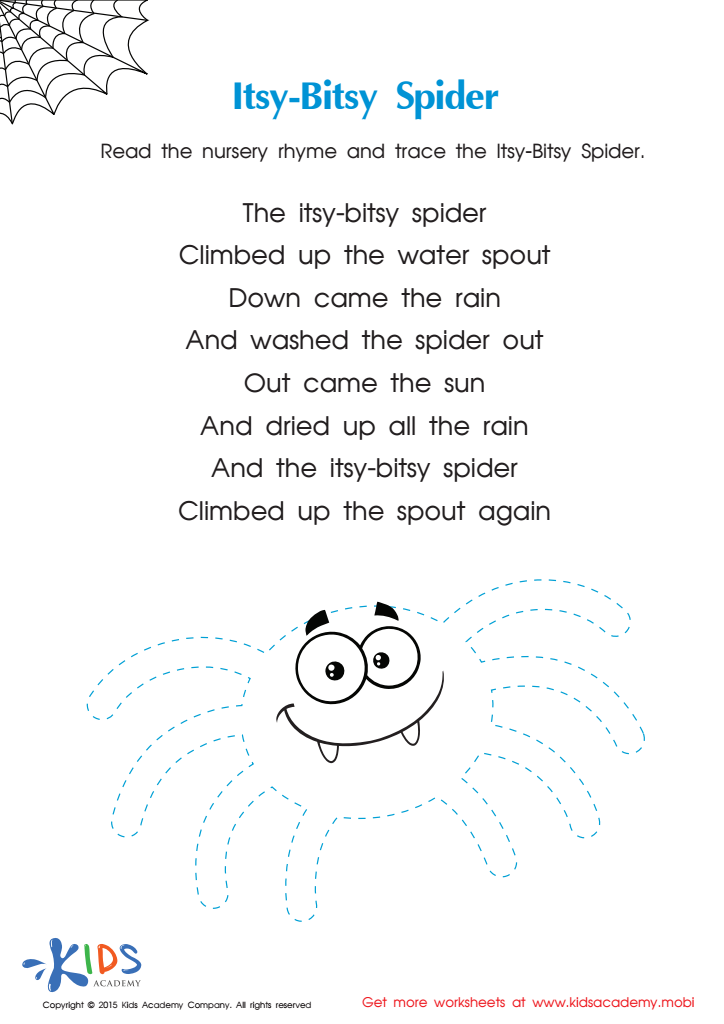

Itsy Bitsy Spider Nursery Rhyme PDF Worksheet
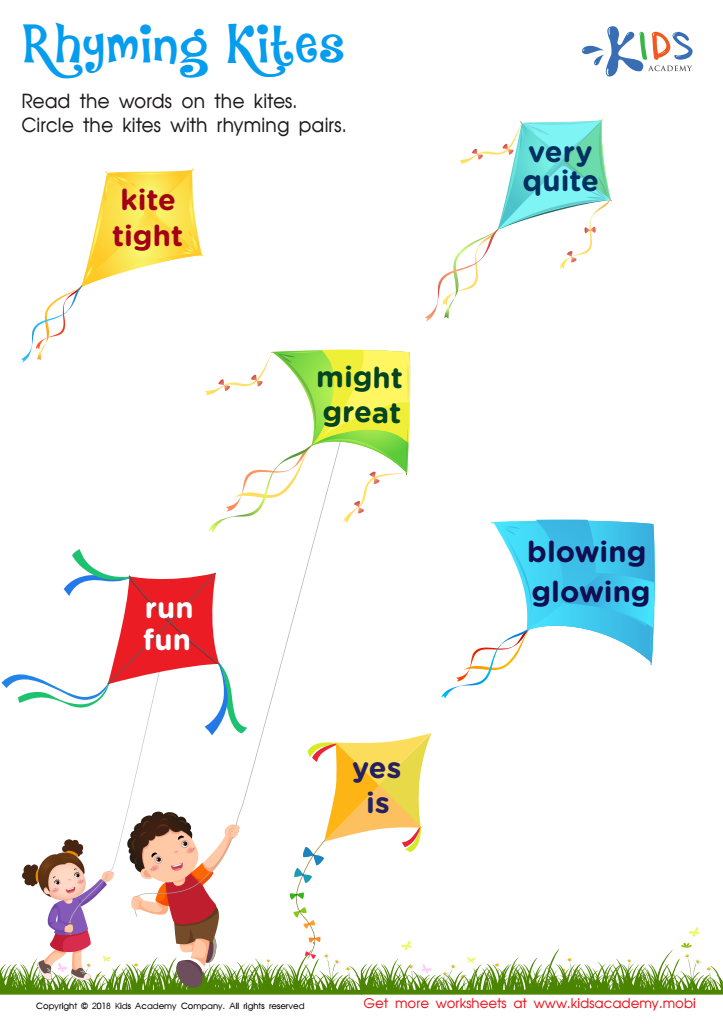

Rhyming Kites Worksheet
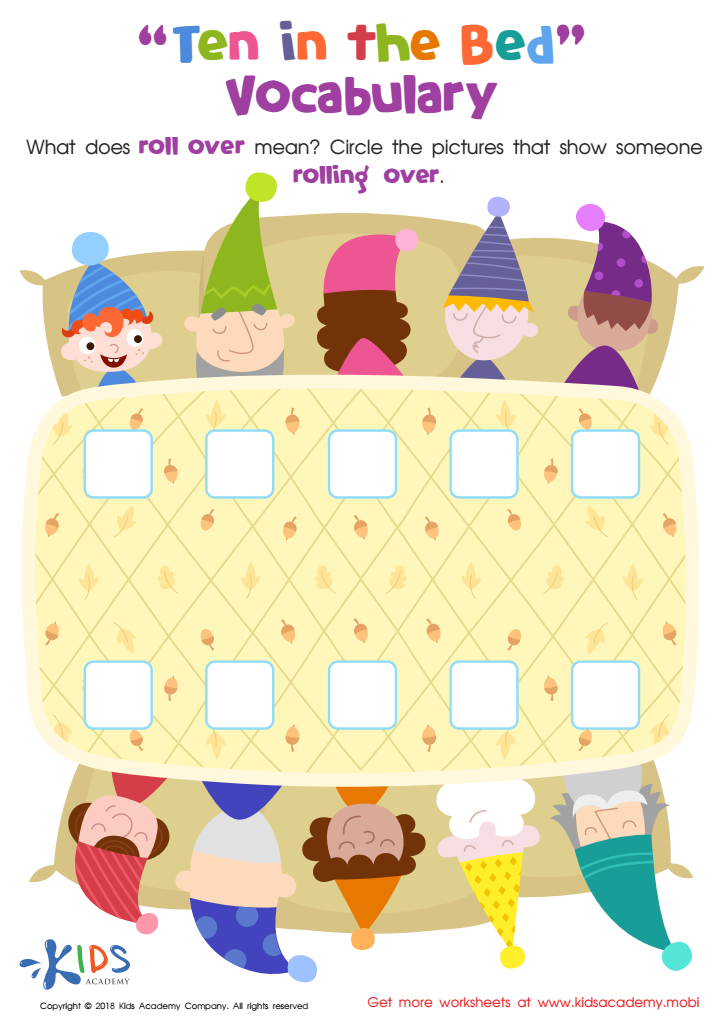

Ten in the Bed: Vocabulary Worksheet
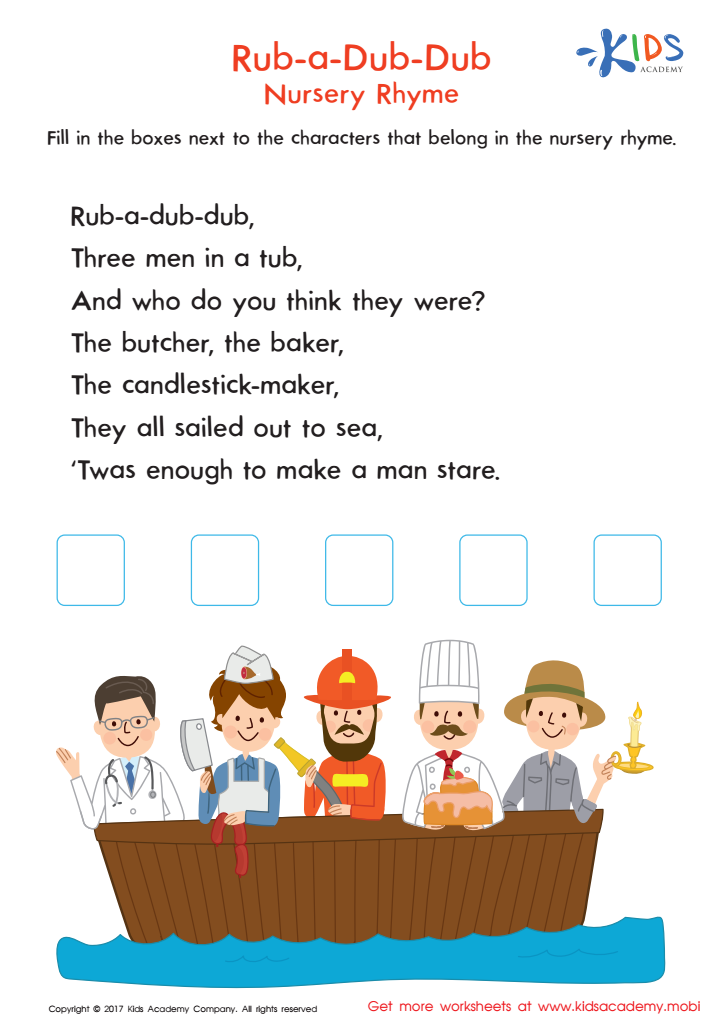

Rub a Dub Dub Printable
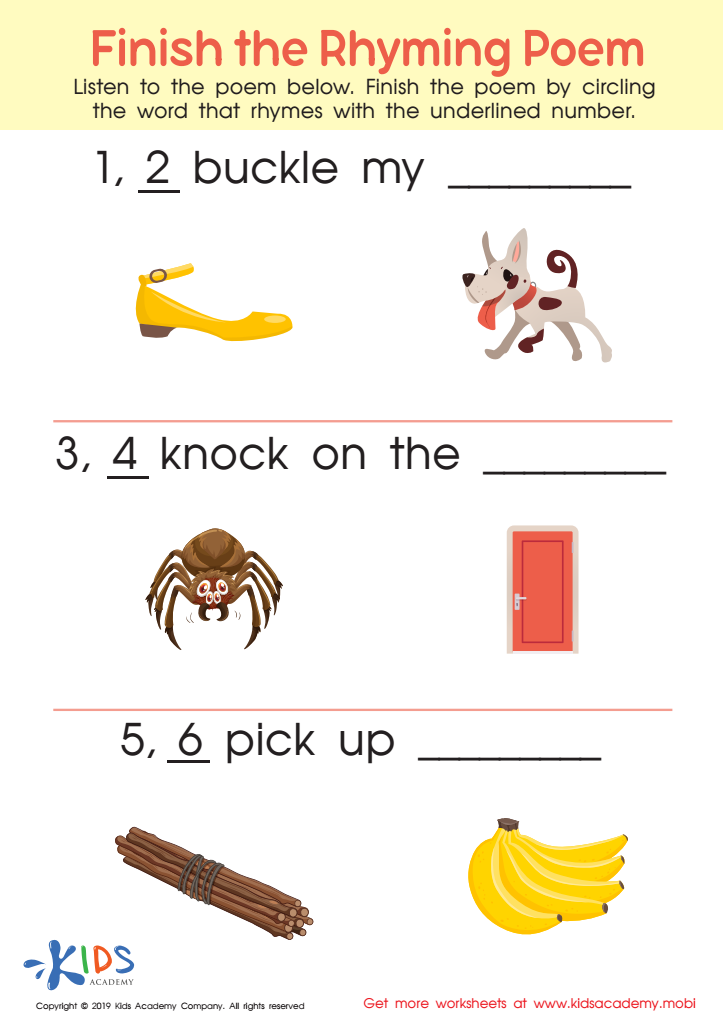

Finish Rhyming Poem Worksheet
Rhyming skills play a crucial role in early literacy development for children aged 3-6. During these formative years, children learn about sounds and words in a fun and engaging way. When parents and teachers focus on rhyming, they help children develop phonemic awareness—the ability to hear and manipulate sounds in language. This skill is foundational for learning to read and write.
Rhyming activities, such as singing songs, reading storybooks with repetitive phrases, or playing rhyming games, enhance vocabulary and auditory discrimination. They also promote memory and recall; children are more likely to remember words and phrases that sound similar.
Moreover, mastering rhyming supports early spelling and decoding skills, as it encourages recognition of patterns within words. When young learners grasp rhyming, they develop a love for language, which paves the way for a positive reading experience.
Encouraging parents and teachers to engage in rhyming activities fosters a rich, language-rich environment that boosts communication skills. These interactions not only strengthen cognitive development but also create lasting bonds through shared joy in learning, ultimately leading to greater success as children advance in their reading abilities. Prioritizing rhyming skills is essential for laying a strong literacy foundation critical for academic achievement.

 Assign to My Students
Assign to My Students






